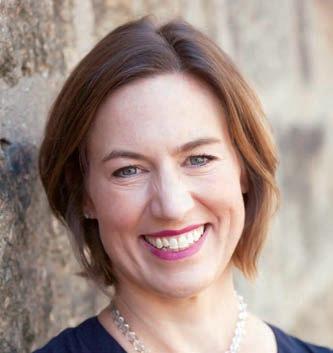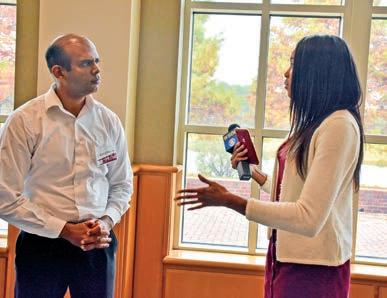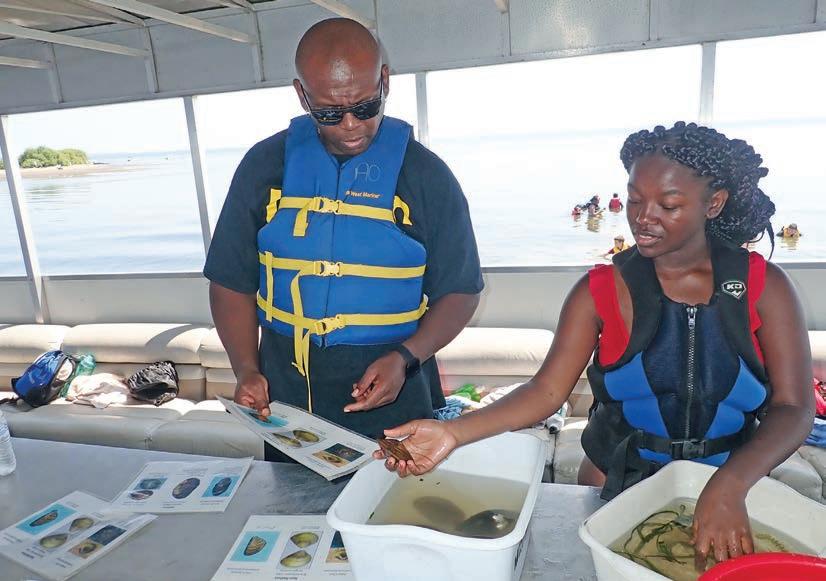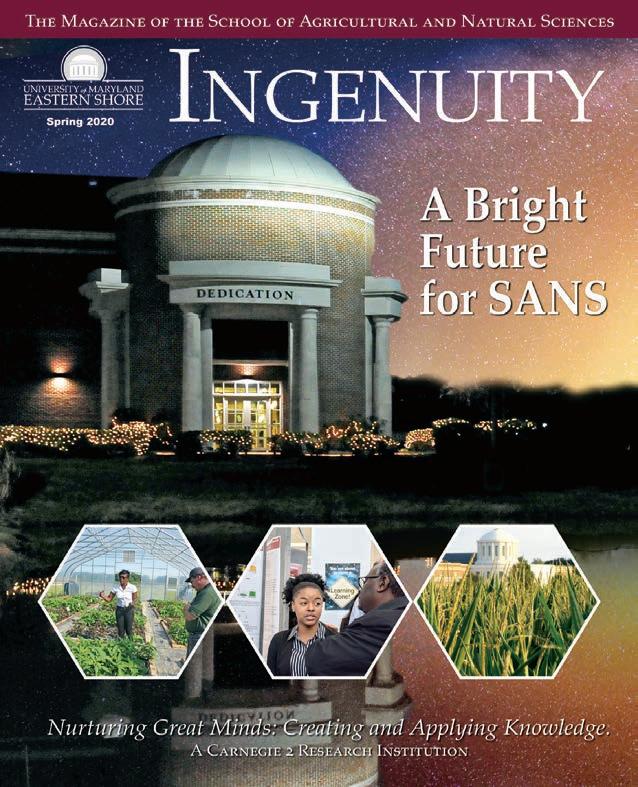
13 minute read
International Research
INTERNATIONAL SERVICE LEARNING IN Costa Rica
Four UMES students participated in an international service learning project trip to Costa Rica led in part by Dr. Stephan Tubene, associate professor in the UMES Department of Agriculture, Food and Resource Sciences.
The purpose of the project was to enhance learning, discovery, and engagement in tropical agriculture and food systems for faculty as well as students. Tuskegee University, Delaware State University, Tennessee State University, and the University of Maryland Eastern Shore are working together to train globally competent students while working in partnership with CATIE (the Tropical Agricultural Research and Higher Education Center) and EARTH University, both in Costa Rica.
Activities planned for the students involved urban farming, traveling to the farmers market, exposure to farmers using grafting to grow fruit, a chocolate making demonstration, making fertilizer, planting trees, and more.
Above, pictured from left, are: Jade Madison, junior, general agriculture major; Tylijah Cephas, senior, animal science/pre-vet major; Joshua Wilmer, graduate student studying agricultural education; Dr. Stephan Tubene, associate professor, UMES Department of Agriculture, Food and Resource Sciences; Miyoung Oh, senior, general agriculture major.

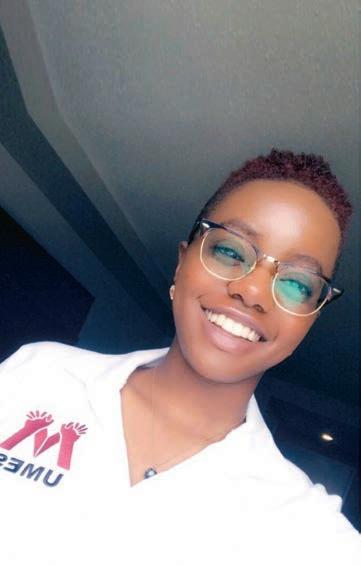
Tyler Reid was one of 367 “fantastic speakers,” their words, during the 2019 Seeds&Chips Global Food Innovation Summit held in Milan, Italy. The Summit, focused on integrating food and agricultural innovation, provided a global platform for the voices of young people, policymakers, entrepreneurs, NGOs, investors, and opinion leaders from all over the world. Forty-six of the speakers, including Reid, were labeled “Teenovators” (or 19 and younger), a title synonymous with “the voice of tomorrow.” For her one-minute presentation, Reid addressed over 30 attendees while discussing her perspective on ag innovation.
A member of Minorities in Agriculture, Natural Resources and Related Sciences (MANRRS) at UMES, she has been groomed over the last 4 years (three as a part of Jr. MANRRS and one at the collegiate level) to be a leader, a public speaker, and most of all to be professional, all while learning the wonders of modern agriculture. Her MANRRS journey has afforded her outstanding opportunities like completing a Borlaug-Ruan International internship in Tainan, Taiwan at The World Vegetable Center and presenting her research at the Global Youth Institute in Des Moines, Iowa. She has been a member since 10th grade, when she started in Jr MANRRS.
“MANRRS has provided a platform for me to grow and evolve as a young professional in the field of agriculture,” said Reid. “The club has provided me with connections to people and other professionals that will last a lifetime. It has fueled my love for agriculture.” Their voices are crucial to the development of solutions to the global challenges they will inherit. With their choices and efforts, they will help humanity transition to a better food system. --http://www.seedsandchips.com Reid Named Among 2019 Teenovators 16 UNIVERSITY of MARYLAND EASTERN SHORE
UMES recognized for study abroad program growth
Ameir Boney works on a clothing fashion design project during her Summer 2018 study abroad program in Florence, Italy with the Knowledge Exchange Institute and in London with the Council on International Educational Exchange. She spent her junior year at the Fashion Institute of Technology in New York City. After graduating this May from UMES with a bachelor’s degree in Human Ecology (fashion merchandising) and an Associate of Applied Science degree in advertising marketing communications from FIT, Boney will work as a buyer for Burlington Industries where she recently interned.
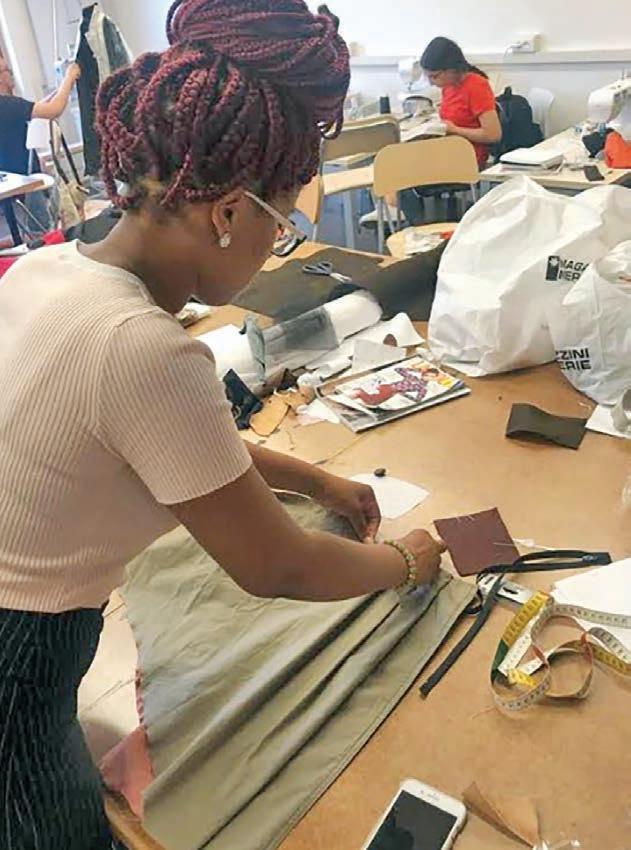
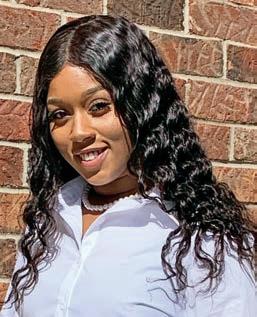
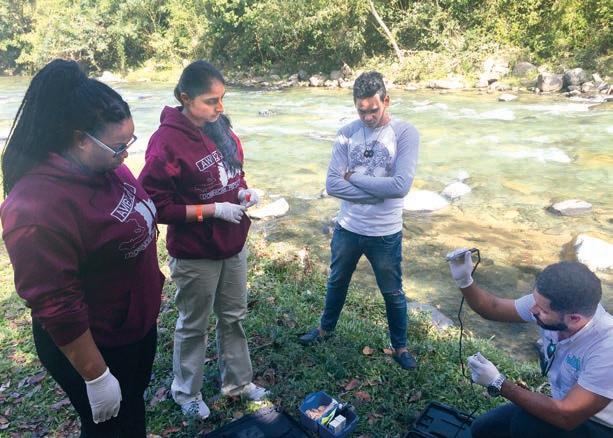
Dr. Lombuso Khoza received the Institute of International Education Generation Study Abroad Seal of Excellence award on behalf of UMES. The university was among 10 collegiate institutions and the only HBCU honored for their study abroad efforts at the organization’s Summit 2019.
Since Khoza took on the role as acting director of the Center of International Education in Fall 2015, the number of students who have participated in international education programs has increased significantly. An effort to give students access to international travel by obtaining passports in conjunction with the local post office (a passport caravan), yielded 62 qualifying students.
“When I began my tenure in this role, UMES only had one student enrolled in a study abroad program,” Khoza said. “Within a 2-year time span, our study abroad program grew to 25 students and is currently at around 85. This number includes short (3 weeks) and long-term (a semester) study abroad, service-learning trips, and mission trips to support medical needs in countries such as Haiti and Vietnam by the School of Pharmacy.”
In Fall 2020, Khoza said, the program will have their first semester-at-sea opportunity. In addition, the office has supported the application of two U.S. Fulbright Award students and a Gilman Award recipient who will be in Peru for the Spring 2020 semester. There is currently one student in Barcelona for the winter session.
Programs in 2019 included a service learning opportunity in the Dominican Republic and a 22 contingent faculty-led tour to Volterra, Italy. Previous students have studied in Brazil, Costa Rica, Italy, Estonia, Spain, China, South Korea, and Kenya, Khoza said.
According to Open Doors (2018), under six percent of African American students have studied abroad. “The Center of International Education, in participation with organizations such as CIEE and other study abroad partners, strive to raise that statistic higher in supporting UMES students to be competent global citizens,” Khoza said. Rasimi Sharma, a biology student in UMES’ Department of Natural Sciences, is pictured (second from left) with a group of students testing water quality in the La Confluencia River in Jarabacoa, Dominican Republic during a January 2019 Service Learning Trip. Dr. Lombuso Khoza accepts the IIE Study Abroad Seal of Excellence award.
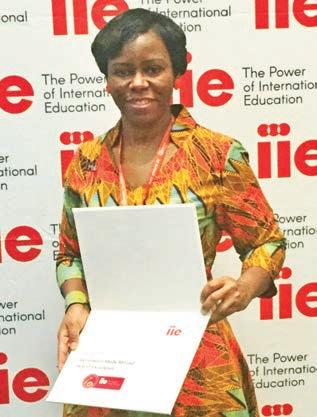
Experiential Learning Experiential or hands-on learning is the hallmark of academia for the School of Agricultural and Natural Sciences, particularly as it pertains to research. Summers at UMES are reserved for such learning experiences. We in SANS value each opportunity for our students to undertake internships in industry and/or the public sector. Here are examples . . .
The NOAA Living Marine Resources Cooperative Science Center (LMRCSC) hosted a 10-week summer program for undergraduate students. The Research Experience for Undergraduates (REU) Program, funded by the National Science Foundation (NSF), is an internship wherein undergraduate students from various universities around the country participate in laboratory and field research activities in the areas of marine and estuarine science.
In addition to field trips, the students were provided instruction on topics like scientific ethics, library resources for research, experimental design, and data analysis. They also attended seminars and workshops covering scientific writing and communication. The Program is administered by Dr. Paulinus Chigbu, director of the NOAA LMRCSC and the REU program, and Dr. Maggie Sexton, the program coordinator.
Geoscience Bridge Summer Program Offers 6 Weeks of Educational Programming
The Geoscience Bridge Summer Program hosted a group of rising freshman who were set to begin college in Fall 2019. The interns participated in a 6-week educational program involving marine geology and chemistry, atmospheric science, physical oceanography, and remote sensing/GIS. The program was established through a collaborative effort of four cooperative science centers funded by NSF.
The Program offered lectures, hands-on laboratory and field activities, field trips, and a freshman seminar course designed to prepare the future science majors for college life. In addition to their science curriculum, the interns also completed college algebra or calculus courses for credit.
Dr. Paulinus Chigbu, professor and director of the NOAA LMRCSC, directs the program along with Dr. Ali Ishaque, associate professor in the Department of Natural Sciences and associate director of the Program.
Project SEED Engages High School Students
The Project SEED program at UMES is coordinated by Dr. Victoria Volkis, associate professor of chemistry, and funded by the American Cancer Society (ACS). Every summer since 2007, UMES has partnered with ACS to offer the program to high school students within commuting distance. Project SEED offers local, ambitious, economically disadvantaged or underrepresented
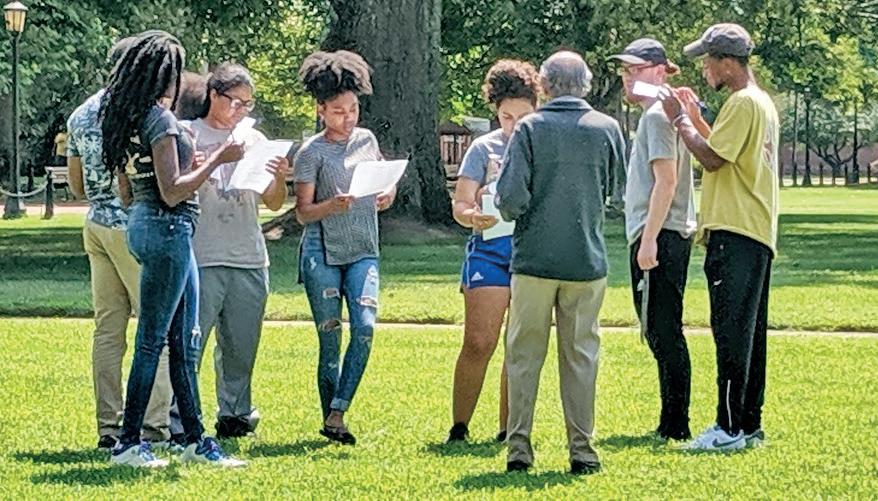
high school students the opportunity to work in an academic, industrial, or government research laboratory for 8 weeks during the summer. The participants are exposed to science through learning and discovery, while earning income. In addition, the students are awarded a fellowship for their efforts. SEED students are encouraged to enroll at UMES and pursue a major in the sciences. Should a SEED student choose this route, the student will be eligible for a SEED scholarship to help meet their financial obligations of college at UMES. The Louis Stokes Alliance for Minority Participation (LSAMP), Lessons in STEM Dr. Tracy Bell is assistant professor of biology and LSAMP coordinator. The NSF initiated the LSAMP program in 1991 to help the nation meets its science, technology, engineering, and mathematics (STEM) workforce needs. Named for former U.S. Rep. Louis Stokes (Cleveland, Ohio), the program is designed to
substantially increase the quantity and quality of minority students receiving baccalaureate degrees in STEM disciplines and, subsequently, to increase the number of minority students entering graduate school to obtain STEM-related doctoral degrees. UMES, under the umbrella of NSF and in collaboration with the University of Maryland Baltimore County and the University of Maryland College Park, designed a Scholars Program that provides ongoing academic and social support for students pursuing STEM majors. Select participants are eligible for stipend support and continued eligibility is based on academic performance and program participation. A Finishing Touch
As a capstone project, students presented their research results to their peers and to faculty during a symposium held at the UMES Paul S. Sarbanes Coastal Ecology Center in Berlin, Md. A joint effort between the REU and LSAMP summer programs, a total of 11 students gave oral research presentations and 19 students gave poster presentations. “When students are engaged in meaningful summer research experiences, it increases their scientific efficacy. For some of these students, this was their first time presenting. So, the symposium provided them with an opportunity to strengthen their communication skills and get a sense of what it may be like to present at larger conferences. Overall, the students were left with a sense of STEM identity and confidence in becoming a scientist.”
Dr. Tracy Bell
Undergraduate Research & Scholarship Scholarship Webster’s dictionary defines scholarship as the character, qualities, activity, or attainments of a scholar . . . or as the serious formal study or research of a subject. The character, qualities, activities and attainments of several UMES scholars are demonstrated below.
NOAA EPP LMRCSC scholars complete 2019 summer internships
Teemer Barry, a sophomore majoring in environmental science, took part in Savannah State University’s Bridge to Marine Science research program. He spent 2 days on the water aboard a research vessel taking and categorizing samples. Afterward, he conducted research focused on analyzing the distribution of non-native lionfish in the area.
Chryson Best-Otubu, a senior marine science major, completed a Woods Hole (Mass.) Partnership Education Program internship at the NOAA Northeast Fisheries Science Center. His research involved analyzing the condition factor (a weight/length relationship) of female summer flounder using structural equation modeling. Such analyses have the potential to improve stock assessments and future decisions in fisheries management.
DaQuan Davis, a junior majoring in environmental science, interned at the Institute of Marine and Environmental Technology in Baltimore, Md. He studied the occurrence of antimicrobial resistance in the Inner Harbor and IMET’s aquaculture research center by testing for antibiotic sensitivity on bacterial isolates, identifying the bacterial colonies with multiple resistance to certain antibiotics and finding bacteriophages for phage therapy techniques. Semaj Fielding, a sophomore majoring in environmental science, did a Mayoral Fellowship in Charleston, S.C. Her research included habitat restoration and management plans for lands that were acquired through FEMA’s buyout process. The group identified plans for the city’s newly acquired properties, which included bioretention rain gardens, impervious pavement, stormwater infiltration trenches, stormwater wetlands, and urban tree canopies.
India Oliver, a biology major and senior, worked on investigating invasive mussel populations using their shells to learn more about their dynamics at the NOAA Great lakes Environmental Research Laboratory in Ann Arbor, Mich. Her research goals were to assess the shell length and weight relationship at depths in lakes Michigan, Huron, and Ontario and to compare size distributions of live mussels and empty shells.
Rhyan Knight, a senior environmental science major, interned at the New Hampshire University. Geoscience interns there did field work and collected sediment cores at different depths from salt marshes, the bay and rivers to study the mercury, methane, grain size and Loss on Ignition within the cores.
Nylah McClain, a marine and environmental science major and senior, completed an internship at IMET optimizing methods to genetically type reproductively sterile sablefish. The research group used DNA extraction and PCR to determine if chromosomes were present to monitor the growth of farm-grown sablefish. They tested 3 DNA extractions methods and 2 PCR protocols to optimize genetic typing methods.
The NOAA Living Marine Resources Cooperative Science Center (LMRCSC) trains and graduates students from underrepresented communities in marine science for careers in research, management, and public policy that support the sustainable harvest and conservation of our nation’s living marine resources. With its partner institutions, the LMRCSC conducts research on marine and estuarine systems congruent with the interests of NOAA Fisheries. The Living Marine Resources Cooperative Science Center is supported by the NOAA Education Partnership Program with Minority-Serving Institutions (EPP/MSI).
Human Ecology major interns in Iowa
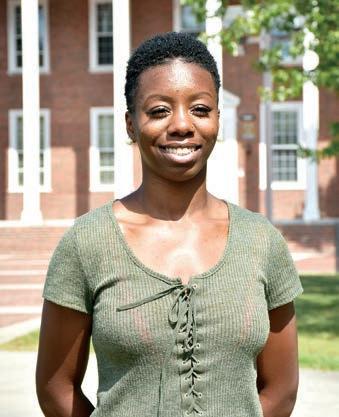
Ayanna Lynn, a junior from Gaithersburg, Md., majoring in human ecology with a concentration in dietetics and a minor in chemistry, completed the Cyclone Scholars Summer Research Experience in the Department of Food Science and Human Nutrition at Iowa State University. It was an all-expense paid internship with a stipend. Lynn was a summer scholar in Dr. Elizabeth McNeill’s lab, where the focus is on understanding the microRNAs’ contribution to certain human disease conditions as well as the aging process. She enjoyed her summer research experience so much that she applied for the Louis Stokes Alliance for Minority Participation (LSAMP) Scholar Program at UMES. She was accepted and is currently an LSAMP Scholar conducting research in Dr. Behnam Khatabi’s lab. L ynn would like to complete a dietetic internship, which is the next step after graduation to becoming a Registered Dietitian Nutritionist (RDN). Then she is interested in pursuing a graduate degree in nutrition. She would ultimately like to develop a program that teaches the importance of healthy foods such as a family initiative where lower-income families work together to help neighborhood friends and family eat three healthy meals a day and become a stronger community.
UMES Senior Awarded Thurgood Marshall Scholarship
Hernan Osorio, a senior chemistry major, is the recipient of a Thurgood Marshall College Fund Scholarship. The $7,400 award is a 2019-20 TMCF Department of Energy Scholarship with funds going toward tuition and fees, on-campus room and board, and books or other class-related teaching materials.
“Hernan Osorio, a first generation Mexican American who, for lack of funds and familia commitment, almost gave up his college dream, has become an outstanding success in chemistry,” said Dr. Deborah Sauder, chair of UMES’ Department of Natural Sciences. “His undergraduate research accomplishments are significant. He credits his experiences in the Henson Honors Program with supporting him in developing the leadership skills his faculty observe every day. We cannot think of a more deserving student and offer him our heartfelt congratulations.”
Osorio is an aspiring physician. He currently holds a 3.9
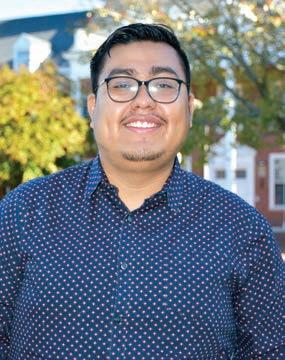
GPA while taking on such activities as being a Center for Access and Academic Success Hawk Mentor, a Richard A. Henson Honors scholar, an events manager for the UMES Pre-Professional Society, and a Louis Stokes Alliances for Minority Participation affiliate/ student researcher. For his research, he is working under Drs. Victoria Volkis and Udeochu Uche, both associate professors of chemistry in the Department of Natural Sciences. With Volkis, Osorio is working on extraction of essential oils from medical plants and their applications as organic pesticides and in medical textile. With Uche, he is working on interactions between DNA and Emetine, an anti-cancer agent.
“Hernan is a very curious student, hard worker, and goal-oriented individual. He is passionate about science and excited about each and every discovery he makes in the lab. It is a pleasure to work with him,” Volkis said.

